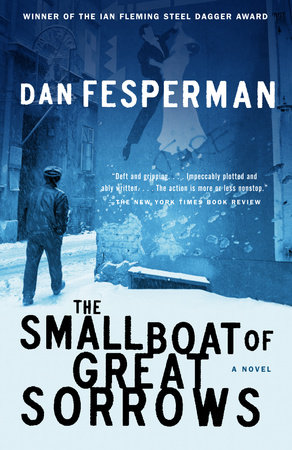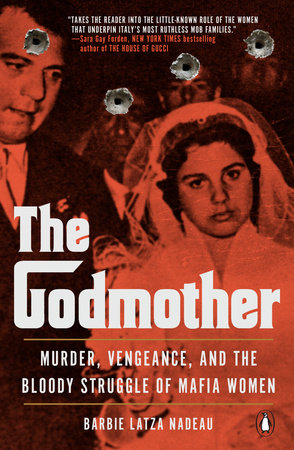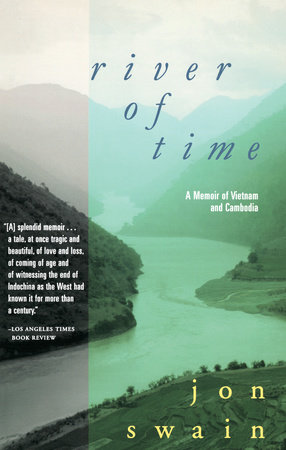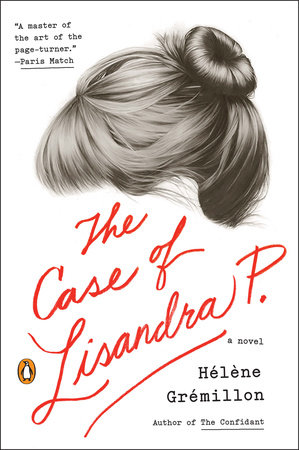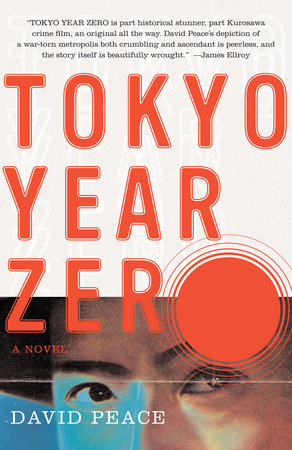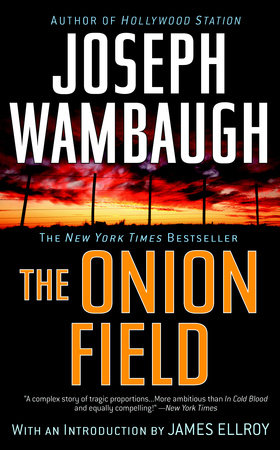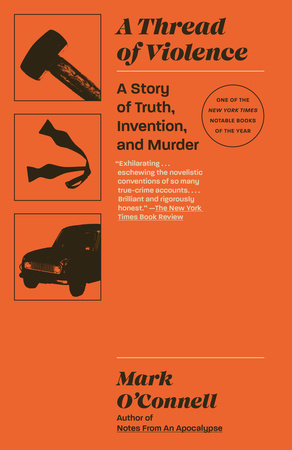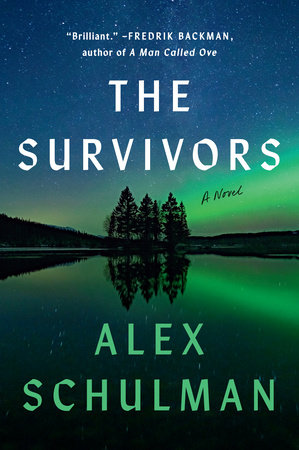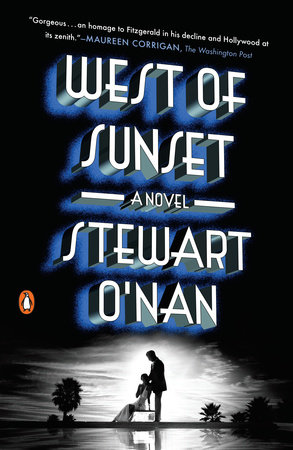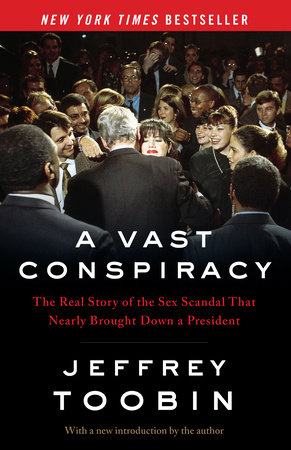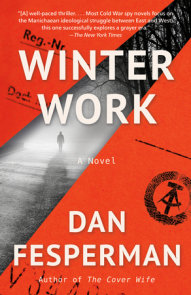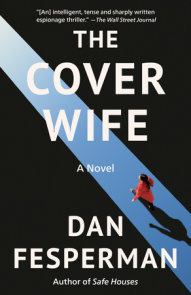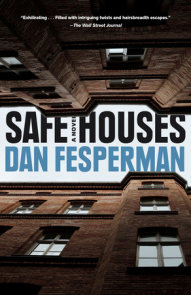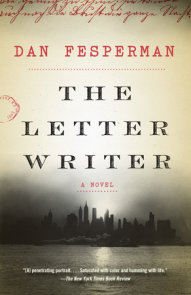Author Q&A
A Conversation with Dan Fesperman
Q:Could you tell us a little about the title, The Small Boat of Great Sorrows? Where did it come from? Why did you choose it?
A:It’s taken from a line in a Serbian epic poem from the 19th century, called The Mountain Wreath. It’s a very nationalistic poem, full of blood and guts and a fair amount of intolerance, and in Belgrade it became a part of the cultural drumbeat leading up to war in 1991. So when I began trying to come up with a title I felt like it was the perfect place to go exploring, looking for some word or phrase to plunder. When I read it, one of the stanzas leaped out at me right away, because it seemed to sum up the heart and soul of not only the latest war but all its previous installments, going back 600 years. It’s the stanza I used for the epigraph:
"Awesome symbols, the Crescent and the Cross;
Their kingdoms are the realms of graveyards.
Following them down the bloody river,
Sailing in the small boat of great sorrows,
We must honor the one of the other."
Basically the poet, Njegos, is declaring that no matter how violent or awful things get, that you still have to choose sides and stick with your own people against everyone else. Never mind all the "peace and brotherhood" propaganda. And in choosing sides, of course, you only insure further misery and sorrow. I also like the imagery of it, this idea of Bosnia as a tiny boat among the dreadnought of Europe, tiny yet freighted with an excess of pain and regret, all its passengers swept along in an irresistible current. Grim, yes, but apt.
Q:Calvin Pine left his job as a prosecutor in the States because he felt that he was not getting the real "bad guys." What does he mean by this? Does this not hold for his work for the War Crimes Tribunal? As a reporter who has covered several wars, is this a common problem? Did you feel the sense of helplessness Pine does?
A:I think Calvin Pine says it best when he tells Vlado that he felt like he was locking up half the high schools of Baltimore. He was putting away the footsoldiers while the drug lords were staying open for business. And who were these footsoldiers, anyway, but a bunch of teenagers with no hope of a future other than what they could find on the streets. With the tribunal, at least, he was theoretically going after the guys at the top, and the crimes were genocide, torture, mass rape. You look at the indictments and you see the names of presidents, generals and commandants, so you know you’re aiming high, which obviously would appeal to a disillusioned burnout like Pine. But he soon finds out, of course, that an indictment is worthless until you’ve actually rounded up the suspect. And he sees a bunch of NATO armies simply lolling around while these thugs zip past in their cars and scooters, drinking coffee under everyone’s noses. So once again the guilty parties are escaping justice, but for a different reason.
War reporters suffer from different frustrations. If American soldiers are involved you don’t have to worry about people reading your stuff, because everybody back home is paying attention. But in a place like Bosnia it was a constant struggle. The worst European slaughter since Hitler was unfolding, but Americans couldn’t pronounce the names and couldn’t identify with the motives, so their inclination was just to watch, not to act. People’s attitude was, why risk our necks when they can’t work out their own problems? You heard that a lot, so you felt like you were writing for an audience that was tuning you out.
Q:The novel addresses the question of the past and whether it is better to revive the past or let it rest. Several of your characters spend a lot of time attempting to reinvent themselves in order to escape the sins or mistakes of their past. Do you think that the people of the Balkans will ever be able to escape the sins of their history?
A:The great tragedy of the last round of wars in the former Yugoslavia is that they very nearly did escape their past sins. If they’d lasted one more generation without war, they’d have probably made it through the next century unscathed. It has always been a point of collision for empires and faiths, of course. The Ottoman Turks versus the Austro-Hungarian Hapsburgs, which begot Muslim versus Christian, not to mention that on the Christian side you’ve always had the split between the Catholic Croats and the Eastern Orthodox Serbs. But the period that came back to haunt them in 1991 was World War II, when a lot of nationalist Catholic Croats took up arms alongside the invading Germans, killing Serbs by the hundreds of thousands. Even after Tito took over and told everyone to kiss and make up, you still had Serbian grandmas and uncles muttering over the dinner table about how you could never really trust those Croats, nor even those Bosnian Muslims, who in their eyes were no better than the Turks.
With each decade the grumbles of mistrust grew fainter, but unfortunately Tito couldn’t outlive the rest of his generation, and once he died the doomsayers took over. Leaders like Milosevic were more than willing to capitalize on all the revived paranoia, and this time it was the Serbs who lashed out first, and once the killing started the whole nasty cycle was back in motion — murder, retribution and murder, like a wheel rolling down a hill. As an outsider witnessing the mess you can’t help but re-examine the old Santayana quote which has always been presented as such unassailable wisdom — the one about those not remembering history being doomed to repeat it. Well, as Calvin Pine points out, in Yugoslavia they probably did a little too much remembering, stirring up old hatreds until a whole group of people felt it had to kill or be killed. So, sure, Santayana was right in the sense that you don’t want to repeat past mistakes. But maybe he was wrong in singling out remembrance. It’s no so much whether you remember your history, it’s whether you’re smart enough or tolerant enough to learn from it, instead of simply wanting to avenge it.
Q:One character describes America as a place where "history is pretty much, well, history. People are too worried about their jobs and their sports teams and whatever’s on cable that night to be shooting each other over something that happened 50 years ago, much less 600." Do you think America has suffered in any way as a result of this attitude?
A:I think we’re suffering from it right now. There’s a real myopia in America, a limited and insular point of view which says we only have to worry about our own affairs and look out for ourselves, and all that matters is the here and now. Part of this is understandable, simply because it’s such a big country with so many diverse interests, and there’s an ocean on either side of us. You see it in sports, for example — who cares about the World Cup when we’ve got the Super Bowl and the World Series? Compare that to living in Europe, where you have to pay attention to other places simple because everybody is cheek to jowl, jammed into the same old and crowded bed. No country can even sneeze without its neighbor catching a cold. Here people in, say, Ohio, don’t even care what’s happening in Wyoming, much less in some place like Belgium or Burma, so no one pays attention. Then along comes 9-11, and suddenly everyone is screaming, "Why do they hate us?" If people had been keeping track of the world around them, or to the events of the recent past, they would have already known the answer. And now here we are again, having gone to war pretty much on our own, with an attitude that says if the rest of the world doesn’t like it then that’s their problem.
We’ve also chosen to ignore some pretty stern lessons of history — our own history in Vietnam, plus the experience of the Russians in Afghanistan and Chechnya. All three of those conflicts would seem to caution against trying to forcefully remake an entire nation in your own image. And should we really be so shocked that thousands of Arab fighters are heeding the call for suicide duty in Iraq, after we helped finance the same sort of international call to arms two decades ago in Afghanistan? When a country spends most of its time looking inward, and isn’t inclined to re-examine either its own past or anyone else’s, then you’ve got to expect not only some blunders, but some resentment from outsiders.
Q:The role of the international community in Bosnia is viewed in this novel as very suspect. Can you talk a little about the competing interests and how they affect both the characters in the book and the people of Bosnia?
A:The problem with international involvement anywhere, no matter how necessary and how well-intended, is that there is virtually no such thing as pure altruism. The 19th-century missionaries who spread so much aid and literacy through the undeveloped world were also trying to drum up converts — not just to Christianity but to a certain way of life, right down to the way people dressed and the food they ate. In Bosnia you can overlay a lot of national agendas — if you want to be our buddy you’ve got to kick out those guys — and these competing interests can create problems the local population never dreamed of. In Bosnia, to give you one example, the Muslim-majority government was so desperate for military help during the war that they invited in a bunch of Islamic mujahedeen volunteers from Afghanistan, Morocco, you name it. They tended to be good fighters, but it wasn’t long before they were wearing out their welcome, mostly by trying to impose their brand of Islam on a few towns and villages. Balkan-style Islam was and still is a very secularized brand, and no manner of scolding is going to convince most Bosnians to give up their chain-smoking, their dancing, their gambling or their plum brandy, and plenty of women like to wear short skirts. But these mujahedeen fellows would come into a town and smash up a bar, or slash a few mini-skirts. When peace came, you had 24,000 American troops arriving, and the officers worried that these holdover fighters would become a problem for them as well. They worried with good reason. There turned out to be a minor al-Qaeda cell in Sarajevo. In addition, with any huge aid bureaucracy, like the kind you’ve had in Bosnia, you’re going to have elements of graft and corruption which will feed the local market for organized crime. That said, people in Bosnia tend to look at the overwhelming presence of the "internationals" in their midst with both relief and resentment. They resent that foreigners have so much control, not to mention the majority of good jobs. But many of them don’t yet trust their own leaders to do the job, believing that another war would break out almost the minute the internationals departed. Vlado’s gripe is mostly with the inherent condescension, the idea that all of these people from other countries are sure that they know what’s best not just for his country but for him as well. They talk down to him, sometimes without realizing it. And they expect him to laugh along when they make little jokes about his people, as if, by having been accepted among the outsiders of the tribunal, he has elevated himself above the status of mere Bosnian. It rankles, although he’d be among the first to recognize the mess that his people have made of their country.
Q:Early on in the novel, Vlado learns some troubling facts about his father’s past that lead him to re-evaluate everything he thought to be true about his father and childhood. How well do you think children can ever really know or understand their parents?
A:Children see their parents through such a narrow lens, and from such a selfish point of view, that they’re bound to misread them, and they’ll rarely get to know them in the way that other people will. It’s not wrong, or even a flaw in the relationship, it’s just the nature of being a child. These are the people who provide for you, but also the ones who punish you and set your limits, so if the relationship gets rocky your parents could be Albert Schweitzer and Margaret Mead, yet to you they’re going to be the most despotic dolts on the planet. On the other, if they’re kind and loving and fair, for most of your life you’ll regard them as beyond reproach, even if they happen to be charter members of the Ku Klux Klan, especially if you end up sharing their intolerance. It’s only when you’re older that you begin to discover your parents as human beings, as creatures that live in a wider world than your own, especially once you have children of your own. And this is where Vlado is in his life. He’s got a daughter. He has just lived through a war. And he has also reached that point at which many children begin re-examining their parents lives through a fresh eye, that of a parent. They remember stories they’ve heard all their lives and start seeing them in a different light, with a more complex meaning. But even then they can never quite give up the child’s point of view, and that’s what Vlado runs up against when he’s trying to reconcile his image of this quiet, caring man with that of a ruthless guy who, it would seem, was willing to kill people simply because those were his orders, or on behalf of a political cause.
Q:The truth gets thrown around a lot in this story; about history and people. No account it seems, even those with a government seal on it, is completely reliable. What then arewe meant to believe?
A:I suppose we’re meant to believe that we can only trust what we see with our own eyes, and even that isn’t always what it seems. And that we should be especially wary when we’re dealing with the historical record. So much of what is written as history depends on point of view, the biases of the writer. The winners of wars tend to dictate how the histories are written, so the accounts often lose their subtleties until a later generation takes a fresh assessment. When Vlado discovers that his vision of his father’s past has been a lie, he delves into the historical record only to find that it, too, has been tweaked and doctored by various people with their own motives and their own secrets. That’s one reason I had one of the dubious diplomats in the book, Paul Harkness, bring up the old "wilderness of mirrors" phrase coined by spymaster James Angleton, who plays a bit part himself. Angleton was referring to the baffling terrain of espionage, but the term might just as easily be applied to the nether regions of history. Vlado follows his father’s trail into one of those regions — the shadowland between World War II and the Cold War, when someone might be deemed a good guy one day and a bad guy the next, and when war criminals with the right anti-Red credentials could sometimes bargain their way to safety. When looking for truth in places like that one always has to dig through layers, just as Vlado does. You could compare it to taking a core sample from the sediment of a riverbed. If you choose to focus on one layer only, you’ll misread the entire geology. You have to look at the whole, the patterns, the changes from one year to the next. It’s what you do as a war reporter as well, drawing opinions and accounts from various people about the same event. All of them will likely be flawed, but the whole can provide a semblance of reality. The truth remains elusive, but with enough work you can generally close in on an approximation, and this is what Vlado manages to accomplish.
Q:What led you to write a story about war and its aftermath? And what, if any, lessons would you like readers today to take from it?
A:War brings out the absolute best and worst in people. They have to make choices that they’d otherwise never face, and the concept of sacrifice literally becomes a matter of life and death. A self-serving betrayal which in civilian life might cost a friend a job, might in wartime cost several thousand people their lives. As horrible and violent and even unnecessary as many wars are, all are wonderfully unbiased tools of identification. If someone is a scoundrel in disguise, a glad-hander who has been fooling his friends for years, the circumstances of war will tend to eventually expose him as a fraud. Obviously this offers a lot of opportunities for fiction. By offering your characters choices, little moments of truth, you can strip away their poses. I don’t suppose there is any moral or lesson to all this, though. If I set out to teach a lesson I’d stray pretty quickly into polemics. Which isn’t to say readers won’t come away with some lesson. They’re welcome to their conclusions, even ones which I might not agree with.
Q:This novel is set in the recent past. Do you think it reflects the Bosnia of the present? How do you see the future of Bosnia playing out?
A:The Bosnia of the present still has a huge international presence running the show, with a lot of the tensions and hidden agendas mentioned in the book. But I think it is generally a much safer, more stable place, if only because of the conclusion of the war next door in Kosovo, and the subsequent removal and prosecution of Milosevic from Belgrade. Organized crime, alas, is still deeply rooted not only in Bosnia but in Serbia as well. The recent assassination of Serbian Prime Minister Zoran Djindjic clearly demonstrated this. But each year that passes without incident strengthens the chances that peace will last. The ethnic zealots are still very much a part of the politics on all sides, and the fresh memories and aggrieved widows of the massacres will keep mistrust and hatred alive for quite some time. It will be the challenge of the next generation to outlive and ignore the chatter of their elders, who will be urging them not to trust, not to mingle, just as the elders were doing through Tito’s era.
Q:And what’s next for you?
A:I’m writing my next book, set in Pakistan and Afghanistan in late October of 2001. I was over there for six weeks then, and in some ways the atmosphere was quite similar to the Balkans — a rural culture done in by war, set in rugged mountains along another one of history’s fault lines, this one being the Khyber Pass. This time my main characters are a young Pakistani translator and a jaded American correspondent who most certainly is not patterned after me. For the moment, I’m on leave from my newspaper job, so there will be no trips to Iraq anytime soon, thank goodness. Covering three previous wars was quite enough. I envy the chance to witness history in the making, but I’m glad to be away from the suffering and killing, as well as the danger. It’s good to be sitting this one out.
